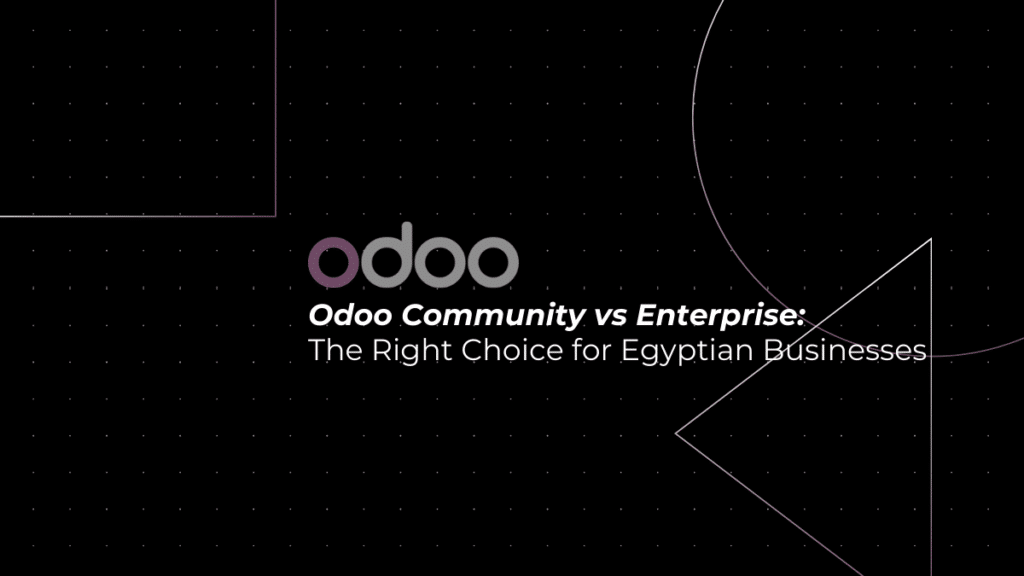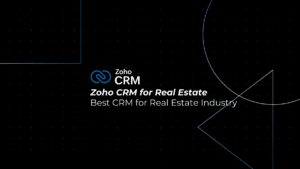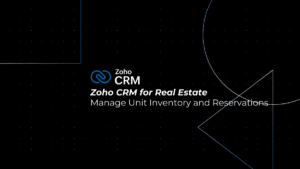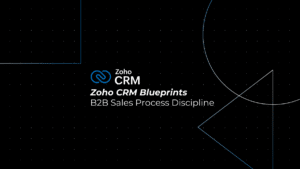Table of Contents
ToggleINTRODUCTION
Are you grappling with the decision of whether to choose Odoo Community vs Enterprise for your business? In this comprehensive deep-dive, we’ll explore the cost-benefit analysis of each edition—focusing on licensing costs, feature differences, support and maintenance, customization expenses, scalability, and security. With ERP solutions in mind, it’s vital for financial decision-makers to understand exactly what you’re paying for as you compare these options. Let’s unpack the intricacies of each option to ensure your ERP investment perfectly aligns with your business goals.
Licensing Costs: The Foundation of Financial Decision-Making

Licensing costs are typically the first consideration for any business evaluating an ERP system. When comparing Odoo Community vs Enterprise, the fundamental differences come to light immediately:
- Odoo Community is free to use, making it an attractive proposition for startups or businesses with limited budgets. However, while the base software comes at no cost, bear in mind that Community edition users may incur expenses for third-party modules, custom development, and maintenance.
- Odoo Enterprise operates on a subscription model, with costs starting at $19.90 per user/month for standard setups or $13.60 for custom setups (all apps included). This subscription covers additional built-in modules, frequent updates, and comprehensive support.
For instance, a small company might initially choose the Community edition to save on upfront fees, only to later encounter increased customization expenses as operations scale. Conversely, a growing mid-sized company might find that the predictable monthly cost of Enterprise—coupled with streamlined deployment—leads to a lower total cost of ownership (TCO) over time. Note that Licensing costs are critical when forecasting your organization’s budget.
Key Takeaways: Free does not always mean free of hidden costs. Predictable subscription fees in Enterprise simplify budgeting, while initial savings with Community might turn into higher customization costs as business needs evolve.
Feature Comparison: Unlocking the True Value of Each Edition
Features and functionalities are a cornerstone in the comparative analysis between the two editions, especially when weighing ERP implementations. Below are some key aspects:
- Out-of-the-Box Functionality
- Odoo Enterprise comes with premium features including mobile access, enhanced accounting modules, manufacturing functionalities, and seamless integrations with third-party systems.
- In contrast, the Community edition may require manual sourcing or development of add-ons to achieve a similar level of functionality. For example, a business with a remote sales team may greatly benefit from Enterprise’s built-in mobile access.
- Additional Built-In Modules
- Enterprise offers official modules for manufacturing, project management, and inventory, reducing the need for time-consuming custom integrations.
- The Community edition might depend on community partners for these modules, which can introduce hidden costs and integration challenges.
- User Experience and Interface
- Enterprise provides enhanced security, updated interfaces, and a mobile-first approach ensuring consistent performance across devices.
- The Community version is highly customizable, though it may require additional plugins and maintenance efforts.
The table below summarizes the differences:
| Feature | Enterprise Edition | Community Edition |
|---|---|---|
| Licensing | Subscription-based ($19.90/user/mo or $13.60 with all apps) | Free, but potential third-party costs |
| Mobile Access | Built-in mobile functionality | Limited or requires add-ons |
| Official Support | Dedicated partner support and bug fixes | Community forums & partner resources |
| Core Modules | Comprehensive modules (accounting, manufacturing, etc.) | Basic modules with potential need for custom development |
| Customization Ease | Streamlined updates and scalability | Highly customizable, but with increased maintenance |
| Security | Regular updates and compliance features | May require manual updates and additional tools |
Do This, Not That: Choose Enterprise if you require out-of-the-box solutions with strong support to reduce downtime and extra costs. Avoid Community solely for its free nature if you cannot accommodate potential hidden customization expenses.
Support and Maintenance: Minimizing Risk and Downtime
Support goes beyond troubleshooting—it is vital for continuous operational efficiency and financial performance. In Odoo Enterprise, dedicated support included in the subscription fee ensures timely bug fixes, platform upgrades, and proactive maintenance.
On the other hand, Odoo Community relies on community forums and third-party partners for support. This can be sufficient for tech-savvy teams, but may lead to delays during critical outages, thereby increasing potential costs.
Expert Tip: Document your incident response requirements and measure potential downtime costs to choose the edition that best matches your business’s operational needs.
Customization Expenses: Balancing Flexibility with Upkeep
One key advantage of the Community edition is its open-source flexibility, which allows for extensive customization. However, deep customizations can cause complications during system upgrades, conflicting with new updates and increasing long-term costs.
In contrast, the Enterprise edition is designed to ensure smoother upgrades even with some customizations. Built-in modules and official support reduce overall risk and ensure that additional expenses remain manageable.
Actionable Advice: Estimate your customization needs and consult with partner experts to conduct a feasibility analysis regarding system upgrades before making a decision.
Scalability: Planning for Growth
Scalability is crucial for business growth. While both Odoo editions offer scalability, the Enterprise edition’s cloud hosting, integrated modules, and predictable subscription pricing simplify budgeting and ensure smooth expansion. For example, as user numbers grow, the Enterprise edition minimizes operational hurdles and supports remote work environments efficiently. Scalability becomes a significant factor when planning for future growth.
Conversely, the Community edition, though highly customizable, may introduce challenges and hidden costs with increased user loads and integration complexities.
Best Practice: Analyze projected growth to estimate additional IT or developer costs, ensuring that your ERP system remains a long-term asset to your organization.
Security and Compliance: Minimizing Risk in a Digital Age

Security is paramount, particularly for financial decision-makers. Odoo Enterprise offers regular security updates, compliance modules, and dedicated support to promptly address vulnerabilities, significantly reducing risk exposure and preventing costly regulatory fines.
In contrast, the Community edition may require manual patching and integration of third-party security tools, which can delay updates and increase exposure to risks.
Pro Tip: For industries with strict regulatory demands, compare the in-house costs for patch management against the assured updates from Enterprise to uncover hidden financial benefits.
Implementation Time and ROI: Quick Wins vs. Long-Term Gains
Time is money. Odoo Enterprise’s pre-built modules and dedicated support enable a faster, smoother implementation, often resulting in a quicker return on investment. This rapid deployment reduces operational disruption and opportunity costs.
Alternatively, while the Community edition may initially save on licensing fees, the need for extensive customization and additional testing can delay the implementation process and postpone ROI.
Actionable Insight: Align your project timeline with the expected rollout of features. A faster implementation may justify a higher upfront cost by delivering quicker operational benefits.
Final Thoughts: Choosing the Right Edition for Your Business
In summary, the decision between Odoo Community vs Enterprise hinges on a delicate balance of factors. Startups with tight budgets might lean towards the Community edition, but must remain mindful of the hidden expenses related to customization, prolonged upgrades, and security patch management.
Conversely, while Odoo Enterprise requires a subscription fee, its robust support system, built-in features, and smoother implementation process offer a lower total cost of ownership in the long term. This all-in-one solution minimizes risk—especially in industries where even minor downtimes could lead to significant financial repercussions.
Key Point: Choose the solution that not only meets your current requirements but also scales effectively as your business evolves.
Key Comparisons Recap
| Aspect | Odoo Community | Odoo Enterprise |
|---|---|---|
| Licensing Cost | Free initial cost; hidden customization fees | Subscription-based ($19.90/user/mo or $13.60 with all apps) |
| Features | Basic modules; requires add-ons for advanced functions | Comprehensive modules: mobile, accounting, manufacturing, etc. |
| Support | Community forums & third-party developers | Dedicated partner support and proactive maintenance |
| Customization | Highly flexible but with higher maintenance risks | Streamlined upgrades with controlled customizations |
| Scalability & Implementation | Potential hidden costs and complexities | Optimized for growth with predictable costs and faster ROI |
| Security & Compliance | May require manual patching and extra tools | Regular updates with compliance certifications |
Expert Tips and Best Practices
1. Do Your Homework: Evaluate existing business processes and identify areas for improvement by comparing current system workflows to the capabilities of each Odoo edition.
2. Leverage Trial Phases and Demos: Many vendors offer trial periods or demos; use these to assess how well each version fits your operational context.
3. Forecast Total Cost of Ownership (TCO): Consider licensing, customization, support, and upgrade expenses not just in the short term but over the long haul.
4. Consider Future Growth: Ensure that the ERP solution you choose can adapt to your business’s evolving needs and expansion strategies.
5. Evaluate Security Risks: Analyze real-time security measures and compliance features to safeguard your organization’s data and reputation.
Conclusion
Choosing between Odoo Community and Enterprise is more than a technical decision—it’s a strategic financial one. By weighing licensing costs, feature sets, support, customization, scalability, and security, you can determine the solution that best aligns with your business’s growth trajectory and operational needs.
For decision-makers with stringent budgets, the Community edition might appear attractive initially; however, hidden costs and delayed implementations can erode early savings. In contrast, the Enterprise edition, with its comprehensive out-of-the-box functionality and dedicated support, ensures long-term efficiency and a predictable cost model.
Additional Best Practices
- Monitor Update Cycles: Regularly review updates to benefit from new features while ensuring system stability.
- Engage in Community Forums: Even Enterprise users can gain insight from community feedback and real-world experiences.
- Periodic Performance Reviews: Use metrics such as user engagement and downtime to periodically assess system performance.
Final Takeaway
Every business scenario is unique. This in-depth analysis shows that a reliable, fully-supported ERP system can be the linchpin for sustainable growth. Choose the solution that not only supports current operations but also scales with your company, ensuring enhanced productivity and long-term financial stability.
Empower your decision-making with clear data and actionable insights, and let your ERP investment drive success in a competitive digital marketplace.
About the Company
As an industry expert in ERP systems, PyramidBITS specializes in guiding financial decision-makers through the complexities of digital transformation. With a focus on detailed cost-benefit analyses and practical, real-world implementations, the goal is to demystify the balance between upfront costs and ongoing operational efficiency.
Final Word
Choosing the right ERP is not just a technical matter—it’s a strategic financial decision that affects every aspect of your business. With detailed considerations covering licensing, features, support, customization, scalability, and security, this guide is designed to help you make an informed, future-proof choice. Bookmark this guide, revisit it during your decision-making process, and join the conversation by sharing your insights and questions in the comments below. Happy decision-making and best of luck on your ERP journey!
Not sure whether to go with Odoo Community or Enterprise?
PyramidBITS can help you choose the version that best fits your business needs and budget in Egypt.
Get your free consultation today and make the smart choice with expert local guidance!



